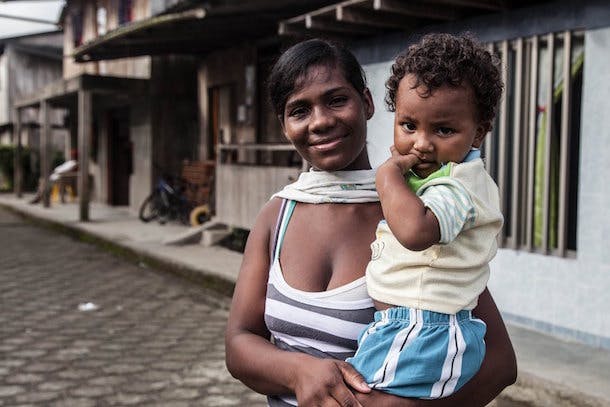
During my pregnancy a few years ago, I had a lot of worries – but none of them included mosquitos.
For countless expecting mothers, especially in Latin America, the fear of the Zika virus impacting the health and welfare of their babies is all too real.
Yesterday, more than 40 journalists from around the world joined the United Nations Foundation team to hear from United Nations experts on the front lines of the Zika response. We listened to briefings from the UN Population Fund (UNFPA), the Pan American Health Organization (PAHO), and the World Health Organization (WHO).
Among the many issues discussed, one priority is clear: to respond adequately to this rapidly spreading virus, we need to ensure every woman who wants it has access to quality sexual and reproductive health care, including voluntary family planning information and services.
The burden of the Zika virus falls predominantly on women of reproductive age and their babies due to potential birth defects. There is increasing evidence that the Zika virus can cause a condition called microcephaly, which results in babies born with malformed or smaller heads and brains and potentially serious developmental delays. The issue is so serious that some countries that are hardest hit in Latin America are issuing directives to local women to avoid or delay getting pregnant and some countries are issuing travel warnings to the region.
Women who live in poverty are the most vulnerable – as they are most likely to live in mosquito-ridden areas and have the least access to even the most basic family planning information and services. On yesterday’s call, the WHO strongly recommended that women in the affected countries have access to a full range of contraceptive options and counseling, including emergency contraception if they have had unprotected sex. The WHO and PAHO will also be coming out with specific guidance for pregnant women and asserted that women should have medically accurate, respectful advice regardless of the legal implications.
The potential danger of the Zika virus has brought international headlines – and hopefully will unlock the critically needed attention, resources and political will – to guarantee that every woman, everywhere, can protect her health and determine if and when she becomes pregnant.
My son, my husband, and I are privileged to have always had access to quality reproductive health care. But the reality is that there are more than 225 million women and girls around the world who don’t want to get pregnant but are not using an effective form of contraception. UN agencies, especially UNFPA, are fighting for the rights of girls and women on a daily basis. To learn more about the Zika virus and women’s health, visit UNFPA’s website.



 View All Blog Posts
View All Blog Posts